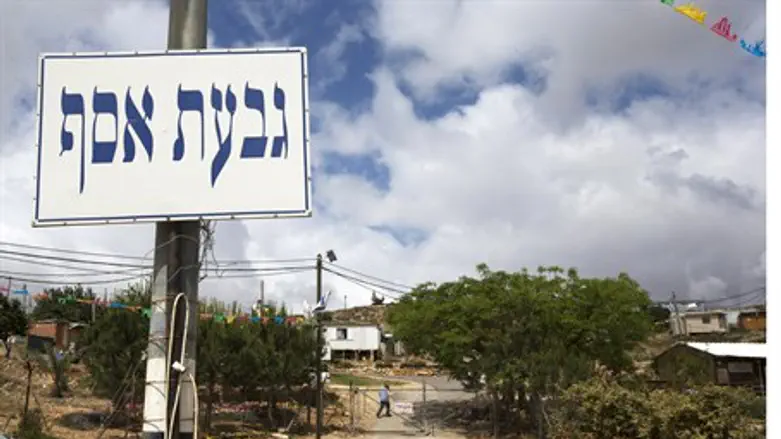
Residents of the Givat Assaf community near Bet El in central Samaria entered into an agreement with security forces in order to prevent the forced demolishing of homes at the site. Residents have begun dismantling structures in areas where the High Court claims that claims by residents that they purchased the land are unclear.
Among the buildings to be dismantled are a ritual bath (mikveh), and a power generator building. One family that lives on the parcel in question reportedly refuses to vacate and dismantle its home.
In 2013, after years of petitions on both sides, the High Court ordered the state to dismantle all structures in Judea and Samaria that local Arabs claim is on land belonging to them. The decision primarily affected several smaller communities, among them Givat Assaf. The decision came in response to a petition by Peace Now, which claimed that the state was “dragging its feet” on previous orders by the Court to demolish structures in these communities. In its decision, the Court slammed the State for failing to follow through on previous orders to demolish structures.
“We do not take solace from the behavior of the State regarding buildings on private Arab property,” the Court said in a statement on its 2013 decision. “At first, the State decided it needed two years to decide whether or not to confer legal status on these communities. Then, it decided to study the possibility of legalizing only some of the communities, and not others. All this has taken place very slowly, and the State seems determined to stretch out the process even further.
“The decision to evacuate and demolish these buildings is a painful one, because of the effect the process will have on residents, who may not have other places to live. Nevertheless, we cannot agree to this lengthening of the process of legalization by the State, its failure to enforce the law, and allowing these illegal structures to remain standing for so long,” the Court said.
On Wednesday, the Court reversed itself several times on demolitions at Ma'ale Rehavam in Gush Etzion. Security forces entered the area Wednesday, based on a court order, but the Court suddenly ordered the forces to hold off. An hour later, however, the green light was given, and forces demolished 11 buildings, five of them inhabited.
Seeking to prevent a repeat of that scene, Givat Assaf residents came to an agreement with security forces to dismantle the buildings themselves, after last minute entreaties to prevent the demolitions failed. Housing Minister Uri Ariel (Jewish Home) drafted a strongly-worded letter to Prime Minister Binyamin Netanyahu Wednesday, whereby he demanded that Israel convene a meeting of the Political-Defense Cabinet immediately over the destruction of several homes in the Judean community of Ma'ale Rehavam.
"Unfortunately, since the freeze on negotiations with the Palestinian Authority (PA) after they broke the Oslo Accords and signed a unity pact with Hamas, we have seen a strange unity of the [Israeli and PA] sides, whereby the State has a policy of systematically destroying homes in Judea and Samaria communities under development," Ariel wrote.
Security forces are also expected to enter Ramat Gilad, further north in Samaria, and demolish several buildings that the Court has ordered destroyed as well.
Appeals to save the ten structures at Ramat Gilad – one of which is a recently-dedicated synagogue – are seen as having a great chance of succeeding, as there is no dispute that the structures were build on privately owned Jewish land. The land is owned by real estate pioneer Moshe Zar, an early settler in central Samaria who purchased much of the land in the Nachal Kanah area, between Karnei Shomron and Ariel to the south.
Ramat Gilad was established about ten years ago in memory of Moshe Zar's son Gilad, who was killed in a terror attack.